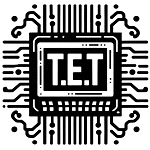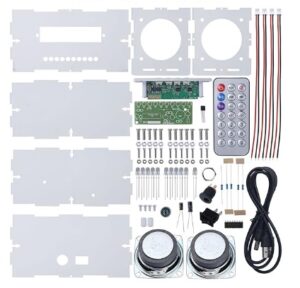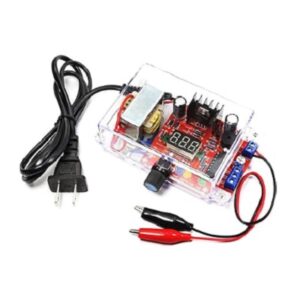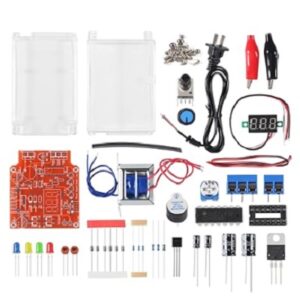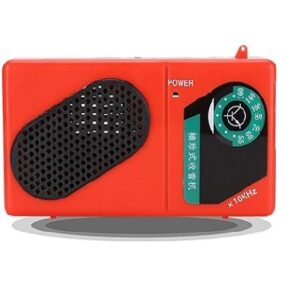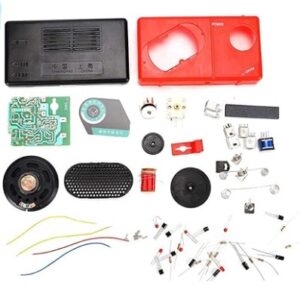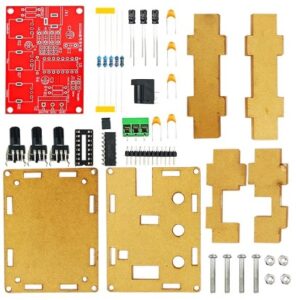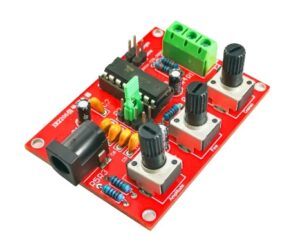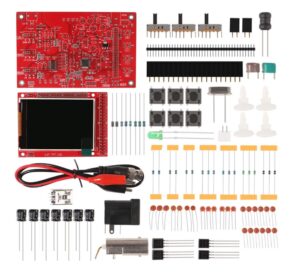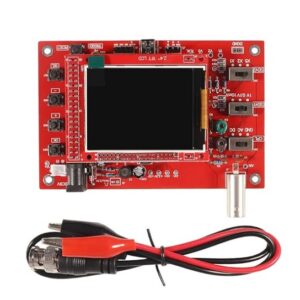Introduction to Electrical Engineering Course

Who This Course is Good For
This course is literally for anyone from any age group with a desire to learn the fundamental Electrical / Electronic Engineering Principles without getting into too much mathematics, which is why we think it would mostly suit hands-on people, and is primarily designed to address the age groups between 12-18, however what most matters is the will to learn, not the age.
The course is finalised with a selection of final projects varying to suit different age groups and skills.
How The Course Is Delivered
This is an ONLINE “At your own pace,” course with 24 solid teaching videos totalling 8 hours of in-depth tutorials, plus 2 hours of step by step sample projects and a lot of extra curricular teaching material with questions and answers for you to follow at your own pace.
Lifetime Access
Once you purchase the course you will have indefinite access to it.
Assistance
Professor Tavassoli will be available via email or if need be via LIVE video to assist you with any questions you may have.
Requirements
There is no previous knowledge, skills, or software required as prerequisite in order to start and complete this course, but following the lessons, and answering the relevant questions at the end of each module.
However, To successfully complete this course and receive a digital or hard copy certificate personally signed by Professor Tavassoli, you will need to have the following:
- A Set of Precision Screwdrivers
- Multimeter
- Soldering Iron /Soldering Gun
- De-solderer
- Soldering Flux
- Solder
- Project Kit (See the selection of Project Kits with more information at the bottom of this page)
Course Fee
The full cost of this course is $325 (or $170 if it’s on a seasonal sale) for the first applicant, and any extra family member or co-op group member can have the same course at $75.
Scholarships are available and decided case by case. Please email for more information.
Any questions about this course can be directed to [email protected]
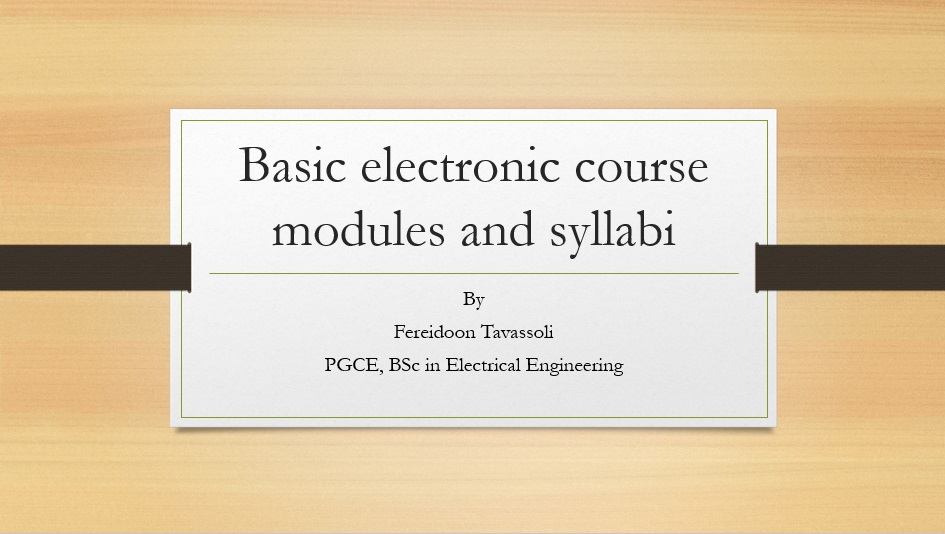
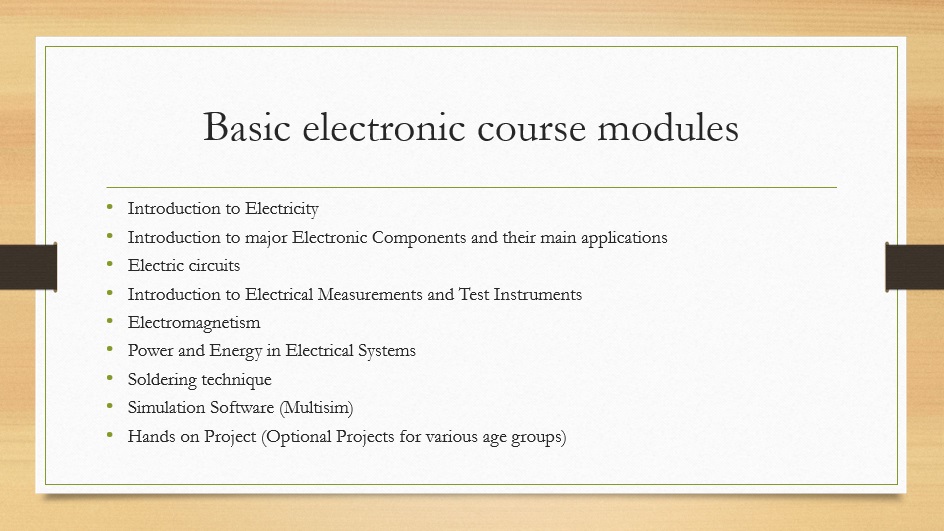
Electrical Modules Covered
24 Teaching Videos containing over 8 hours of solid teaching,
Plus about 2 hours of bonus hands on project tutorial videos
1.Introduction to Electricity
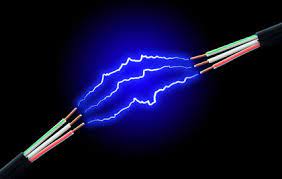
- Approx. 50 minutes of tutorials in 3 videos
- What is Electricity
- What is AC current
- What is DC current
2. Introduction to Major Electronic Components and their main applications

- Approx. 112 minutes of tutorials over 7 videos
- Resistors
- Capacitors
- Inductors
- Diodes
- LEDs
- Transistors
3. Electric Circuits
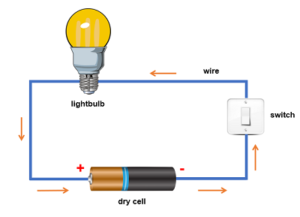
- Approx. 50 minutes of tutorials over 3 videos
- Ohm’s Law
- Voltage, Current, and Resistance
- Series and Parallel Circuits
- Kirchhoff’s Voltage and Current Laws
- Introduction to Circuit Analysis Technique
4. Introduction to Electrical Measurements and Test Instruments

- Approx. 85 minutes of tutorials over 4 videos
- Introduction to Different Types of Multimeters,
- Measuring Voltage, Current, and Resistance measurements Using Multimeters,
- Introduction to different types of Oscilloscopes,
- Voltage Test Probes,
- Introduction to Sensors and Transducers
5. Electromagnetism
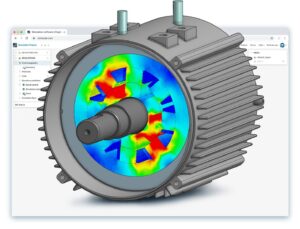
- Approx. 1 hour of tutorials over 2 videos
- Magnetic Fields and Forces
- Faraday’s Law of Electromagnetic Induction
- Introduction to Transformers, their Types and Applications
- Principles of Operation of DC and AC Motors
- Principles of Operation of Generators
6. Power and Energy in Electrical Systems

- Approx. 72 of tutorials over 3 videos
- Power and Energy, Their Measurements and Calculations
- Power Factor and its effects on our Electric Bills
- Tips for reducing your Electric Bill without turning the lights off
7. Soldering Technique

- Approx. 33 minutes of a video tutorial
- Soldering Iron Vs Soldering Gun
- Soldering method
8. Simulation Software
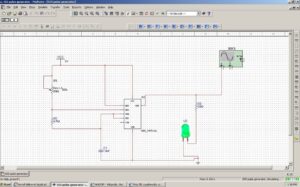
Approx. 15 minutes of a video tutorial
In this module, you will learn how to build and simulate basic electrical / electronic circuitry
As mentioned before, there’s no need to purchase a software to complete this module.
9. Hands on Project
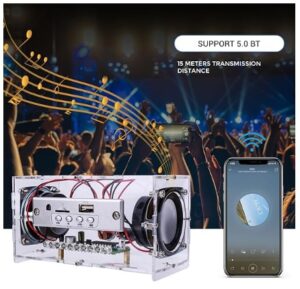
Approx. 113 minutes of tutorials over 4 videos containing the AM Radio and Signal Generator projects, as examples
This course is finalised by learners choosing one of our carefully selected projects suitable to this level or picking their own choice of a project that reflects their skills.
A Selection of Recommended Projects to Choose From
OR
Pick your own suitable electronic project to display your competency skills at the end of the course.
No.1 – “Bluetooth Amplifier Kit”;
This is a rather simple project suitable for learners who would like to try their hands on their first electronic project where they will identify components and do some soldering and assembling to build something that will stay with them and bring in a lot of joy as they will use it to listen to their favourite music.
This will be a useful handy amplifier that you can use daily or keep in your collection of achievements.
VIDEO TUTORIAL NOT INCLUDED
No. 2 “Line Tracker Car Kit”;
This kit takes a bit more of a soldering skill than the No.1 Kit, and you need to understand its working principle to be able to fully appreciate its operation and manage to adjust the potentiometers to their optimum if / when need be, so the car functions without a fault.
This car not only brings a lot of joy to the electronic enthusiasts, but also fascinates everyone else in the family.
VIDEO TUTORIAL NOT INCLUDED
No. 3 – “Adjustable Power Supply”
While this kit is suitable for more confident learners to build and show their competence, the final project not only proves the learners’ ability to identify, assemble and solder electronic components the right way, but also gives them a tool that can be used for years to come in their lab for testing and / or supplying adjustable regulated DC voltage of up to 12 Volts for their other future projects.
VIDEO TUTORIAL NOT INCLUDED
No. 4 – “AM Transistor Radio Kit”;
This project is an intermediate / advanced and also useful project for learners who are quite confident to build more complex circuits, and keep it as a memory of their Engineering achievements that will last for years to come.
VIDEO TUTORIAL INCLUDED
The following projects are for advanced learners who wish to build their own test instruments for their future and complete their lab from now.
However, these take a lot more skills and knowledge, so they’re only recommended for people who are quite competent and wish to continue to higher levels.
No. 5 – “Signal Generator Kit”;
This project and No.4 – “Digital Oscilloscope Kit” are purposely selected here for more confident learners, particularly those who wish to pursue their learnings to higher levels whether with us or elsewhere, since they can be used as measurement instruments for higher level modules of study similar to the way Multimeter is used for this level. What better than using your own hand-made instrument!
VIDEO TUTORIAL INCLUDED
No.6 – “Digital Oscilloscope Kit”;
This project and No.3 – “Signal Generator Kitt” are purposely selected here for more confident learners, particularly those who wish to pursue their learnings to higher levels whether with us or elsewhere, since they can be used as measurement instruments for higher level modules of study similar to the way Multimeter is used for this level. What better than using your own hand-made instrument!
NOTE: This kit contains SMC (Surface Mounting Components), which requires you to have professional soldering skills to be able to complete it.
VIDEO TUTORIAL NOT INCLUDED
Certification
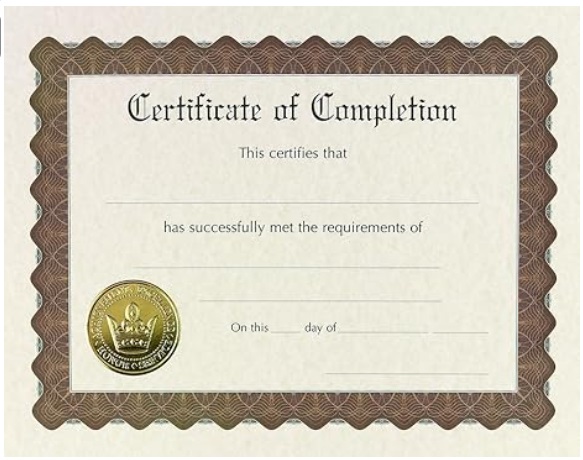
Upon successful completion of the course, and hands-on project* the learner will be able to opt in to receive a completion certificate either in the form of digital download and / or hard-copy gold embossed certificate similar to the above from “Total Electrical Training” personally signed by your lecturer “Fereidoon Tavassoli”.
Futher Courses to Come
Sample of what’s to come in the future courses:
Digital Electronic Course
Programmable Logic Controllers (P.L.C) Programming Course
Three Phase Systems
Power Electronics
Sign up below to be notified of course developments and new courses offered.
